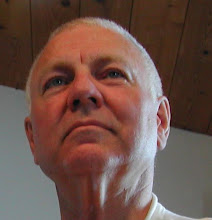Within days of the start of the so-called Arabian Spring last February, I placed the Tunisian and Egyptian uprisings in the tradition of the Magna Carta, the French Revolution and the earliest stirrings of the 1960s psychedelic awakening.
Other historic clashes have occurred horizontally between clans or nations or alliances, with loyalty expressed vertically in hierarchies of national authority.
During more significant changes in human society, however, including the Arabian Spring of 2011, these vectors are reversed. They expose the propaganda and vested interests of vertical hierarchies and lead to new loyalties running horizontally across borders towards peers and neighbours who share the new insights.
This time, I am fascinated by the reaction of the western press who are themselves subservient to corporate financial hierarchies.
Desperate for a context that edifies their hierarchical masters, they have shamefully appropriated much of the credit for Arabia's awakening by claiming it is almost entirely a consequence of Internet technology and social media software. To hear them talk, the globe has evolved thanks to the tools of horizontal, one-to-one and one-to-many communications that are now undermining the vertical propaganda machines of sovereign political tyrannies.
While seemingly plausible on its face, this view ignores the fact this new horizontal alliance has introduced a unifying theme, an overarching dialectic with which the emerging community identifies and spurs itself into action.
The underlying dialectic of the Arabian Spring is spreading wildly, "going viral" to use the recent jargon, and will soon prove to be global.
The conceptual foder provided by progressives from the Arabian crescent is churning up humanity's self-defining narrative like no other in history.
Our Muslim peers have arrived on the scene bearing a keystone. After centuries of world-wide human conflict across tribal and ethnic boundaries, reinforced with a play-by-play narrative supplied by highly Euro-centric interests, this Arabic-speaking and predominantly Muslim cluster of societies is defying all sovereign hierarchies, including our own, and reaching out horizontally to all who share a ground swell of progressive aspiration.
Embedded in every report emanating from Benghazi and flowing to Beijing, Athens and Washington is an irresistable crescendo of demand for an end to political and journalistic fraud, to be replaced by an establishment of free debate and dignified work. This millenial awakening is exposing the raw core of global financial compounding and its hoarding of humanitiy's resources by a self-serving corporate few.
The new regicide will focus on the industries of global banking and insurance far more than on pharmaceuticals, agriculture, or petroleum.
Which brings us back to the astonishing and inspiring leadership being shown by our Muslim contemporaries in the Arabian crescent.
Of all the major religious orthodoxies, including their most secular heirs, contemporary Islam alone retains a modicum of real admonition against Usury. Neither modern Judaism, Christianity, Buddhism, nor Hinduism, whether secular or religious, focuses on Usury at the core of its analysis and dialectic.
Attention to this single issue of financial vested interest – exacerbated by the massive effects of banking and insurance industry compounding, will soon provide the central dialectic and rallying point of a truly global human revolution.
Exposing the Global Financial Cabal is the only alternate and shared human narrative with enough 'oomph' to overthrow the current tyranny of pharmaceutical, agricultural and petroleum lobbies with their ruthless and subversive military and propaganda instruments.
In a relentless sequence of steps, Venezuela and Cuba will continue to explore a direct exchange of oil-for-doctors that bypasses the currencies of international settlement; the neo-Bolivarian regions of Latin America will continue attempts to hoe a financial and economic row more faithful to the social values of their aboriginal roots and apart from the hegemony of global empire; and someone like the governor of the Central Bank of Nigeria, a modern scholar of Sharia Law, will continue to surprise us by winning the prestigious annual 'Best Banker' award from the Financial Times of London despite his remarkable tendency to tell the truth.
If you care to venture beyond these populist musings of mine into a far more literate equivalent between two of this era's intellectual titans, I recommend you take time to understand the nuances in today's posting from DemocracyNow.org.
